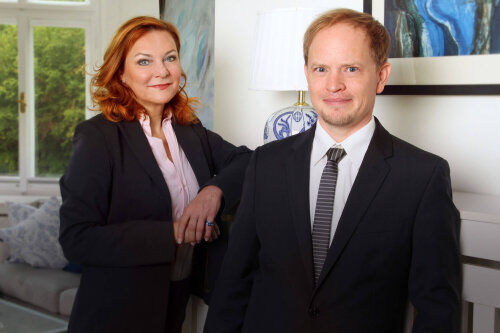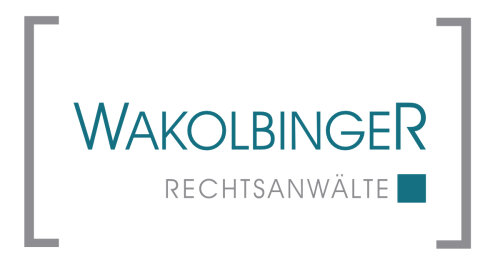Best Collaborative Law Lawyers in Austria
Share your needs with us, get contacted by law firms.
Free. Takes 2 min.
Free Guide to Hiring a Family Lawyer
Or refine your search by selecting a city:
List of the best lawyers in Austria
About Collaborative Law in Austria
Collaborative Law in Austria is a method of resolving legal disputes without going to court. It involves both parties and their lawyers working together in a cooperative way to reach a mutually acceptable resolution. This process focuses on communication, negotiation, and problem-solving to find solutions that meet the needs and interests of everyone involved.
Why You May Need a Lawyer
You may need a lawyer in Collaborative Law proceedings to ensure that your rights are protected, to provide legal advice and guidance throughout the process, and to help negotiate a fair and favorable outcome. Lawyers can also help with the documentation and paperwork required for a collaborative agreement.
Local Laws Overview
In Austria, Collaborative Law is governed by specific rules and regulations that are set out in the Austrian Code of Civil Procedure. These laws outline the procedures and guidelines that must be followed during the collaborative process, including the role of the lawyers, the confidentiality of discussions, and the enforceability of collaborative agreements.
Frequently Asked Questions
1. How does Collaborative Law differ from traditional litigation?
Collaborative Law focuses on cooperation and problem-solving, whereas traditional litigation involves adversarial proceedings in court. Collaborative Law allows parties to maintain control over the outcome and encourages open communication to find mutually beneficial solutions.
2. How long does the Collaborative Law process typically take in Austria?
The length of the Collaborative Law process can vary depending on the complexity of the case and the willingness of the parties to cooperate. On average, it can take several months to reach a resolution through collaboration.
3. Can a Collaborative Law agreement be enforced in court in Austria?
Yes, in Austria, a Collaborative Law agreement can be converted into a court order if both parties agree to do so. This ensures that the terms of the agreement are legally binding and enforceable.
4. What are the main advantages of using Collaborative Law in Austria?
Some main advantages of Collaborative Law in Austria include cost-effectiveness, privacy, faster resolution, and the ability to tailor solutions to the specific needs of the parties involved. It also promotes better communication and preserves relationships.
5. Are lawyers required to be present during Collaborative Law meetings in Austria?
Yes, in Austria, both parties are required to have their own lawyers present during Collaborative Law meetings. The lawyers play a crucial role in providing legal advice, guidance, and representation throughout the process.
6. What happens if the Collaborative Law process in Austria is unsuccessful?
If the Collaborative Law process in Austria is unsuccessful, and an agreement cannot be reached, the parties may then choose to pursue traditional litigation through the court system. This allows them to seek resolution through a judge's decision.
7. Can children be involved in Collaborative Law proceedings in Austria?
Yes, children can be involved in Collaborative Law proceedings in Austria, particularly in cases involving custody or visitation rights. Their interests and welfare are taken into consideration, and arrangements are made accordingly.
8. How confidential are Collaborative Law discussions in Austria?
Collaborative Law discussions in Austria are highly confidential. All communications, documents, and information shared during the collaborative process are protected from disclosure in court proceedings. This ensures privacy and promotes open and honest communication.
9. Can property and financial matters be resolved through Collaborative Law in Austria?
Yes, Collaborative Law in Austria can be used to resolve a wide range of legal issues, including property division, financial matters, business disputes, and more. The collaborative process allows parties to work together to find creative and customized solutions that meet everyone's needs.
10. How can I find a qualified Collaborative Law lawyer in Austria?
To find a qualified Collaborative Law lawyer in Austria, you can contact the Austrian Bar Association or local legal organizations that specialize in collaborative practices. They can provide referrals and recommendations for experienced lawyers who can assist you with your case.
Additional Resources
For additional resources and information on Collaborative Law in Austria, you can visit the Austrian Ministry of Justice website or contact local collaborative law organizations such as the Austrian Collaborative Law Association. These resources can provide valuable insights and support for anyone in need of legal advice.
Next Steps
If you require legal assistance in Collaborative Law in Austria, the first step is to consult with a qualified lawyer who specializes in collaborative practices. They can guide you through the process, explain your rights and options, and help you reach a resolution that is fair and satisfactory for all parties involved. Take proactive steps to protect your interests and seek a collaborative approach to resolving your legal issues.
Lawzana helps you find the best lawyers and law firms in Austria through a curated and pre-screened list of qualified legal professionals. Our platform offers rankings and detailed profiles of attorneys and law firms, allowing you to compare based on practice areas, including Collaborative Law, experience, and client feedback.
Each profile includes a description of the firm's areas of practice, client reviews, team members and partners, year of establishment, spoken languages, office locations, contact information, social media presence, and any published articles or resources. Most firms on our platform speak English and are experienced in both local and international legal matters.
Get a quote from top-rated law firms in Austria — quickly, securely, and without unnecessary hassle.
Disclaimer:
The information provided on this page is for general informational purposes only and does not constitute legal advice. While we strive to ensure the accuracy and relevance of the content, legal information may change over time, and interpretations of the law can vary. You should always consult with a qualified legal professional for advice specific to your situation.
We disclaim all liability for actions taken or not taken based on the content of this page. If you believe any information is incorrect or outdated, please contact us, and we will review and update it where appropriate.
Browse collaborative law law firms by city in Austria
Refine your search by selecting a city.













